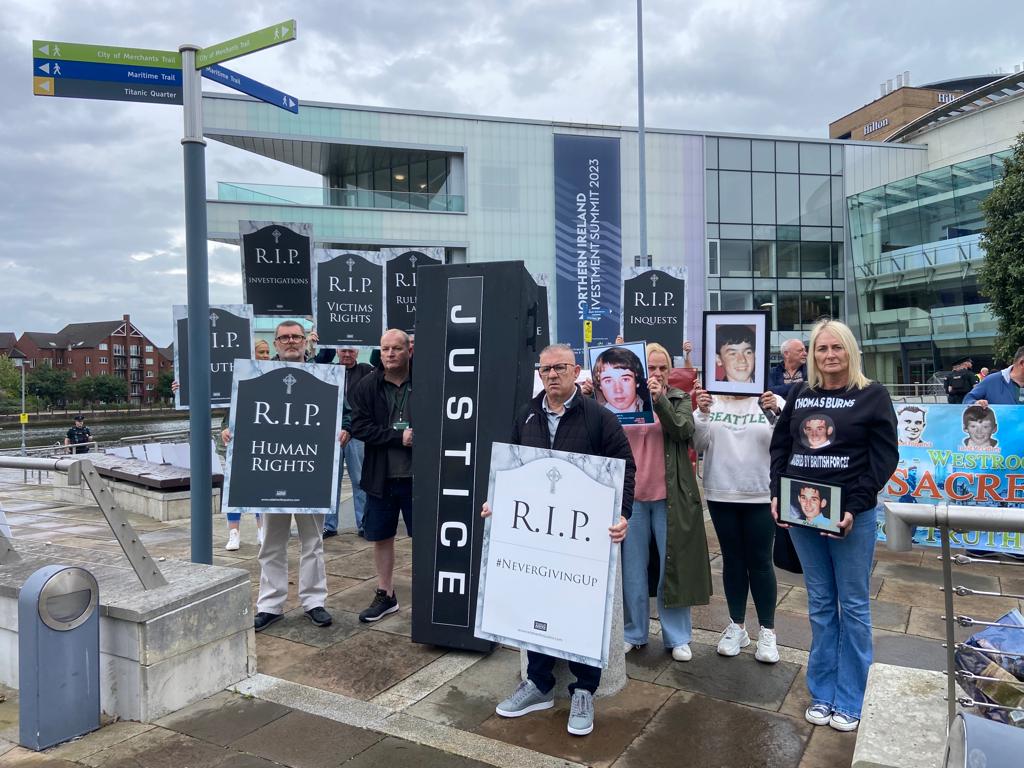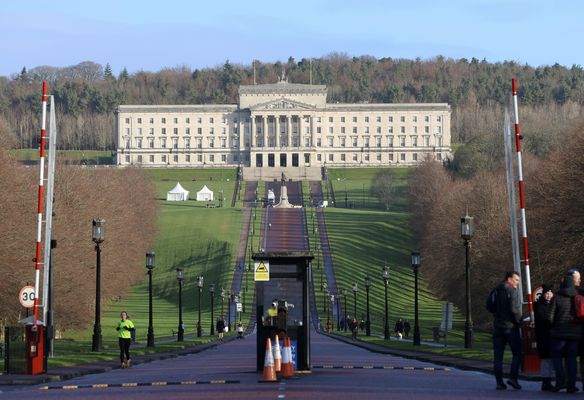THE first skirmish in the battle against the British government’s shameful Legacy Bill has taken place – and victims secured a much-needed and morale-boosting early win.
The Law Society has postponed its annual conference, due to take place on Friday, after plans were announced by victims and their supporters for a demonstration outside the Hilton Hotel. It was there that the conference was due to hear keynote speaker Declan Morgan, the former Lord Chief Justice, who is the local face of the new British government legislation, which is robustly opposed across the political spectrum.
The decision to cancel the event is a setback for the British government and a blow to Mr Morgan as he attempts to sell the unsellable to a population which knows full well that the Tory legislation is an attempt to extract the British state from having to come clean about its murky role in the conflict. The number of people who believe that it is a good faith attempt by No.10 to bring realism to the issue of legacy is vanishingly small – and due to get smaller after the group representing the North’s legal sector effectively distanced itself from the recently enacted legislation.
We simply do not know if Keir Starmer’s Labour Party will see through its promise to scrap the legislation if and when it wins the expected general election victory over the floundering Conservatives, but in the meantime the fight against this iniquitous process will continue to be fought in every sphere of life into which the legislation intrudes.
Relatives can and will make up their own minds on whether or not to engage with the grandiosely named Independent Commission for Reconciliation and Information Recovery (ICRIC) which Mr Morgan heads up. But his already difficult task – and that of the panel of commissioners beneath him – of convincing angry, exhausted and disillusioned victims and relatives that this is a serious attempt to shine a light on historical darkness has been massively complicated by the Law Society’s decision to accede to the wishes of victims rather than provide a prestigious pulpit for the preaching of the ICRIC’s dubious benefits.
Relatives for Justice welcome the decision by the Law Society to postpone their conference platforming the ICRIR and legacy bill of shame, which has now become law.
— Relatives 4 Justice #NeverGivingUp (@RelsForJustice) September 26, 2023
Victims have spoken with one voice. That unity of purpose has been heard loud and clear. Families have spoken… pic.twitter.com/2a7QQpIw0O
Alongside the important work of street protest and agitation, a number of legal challenges have been set in train. The hope is that this cynical legislation, which has been foisted on the people of the North without so much as a by your leave, will be stymied by forensic legal examination.
London administrations have always relied on a powerful mix of ignorance and apathy among their electorate to do as they please here. The number of ordinary people in Britain who are aware of, never mind understand, the centrality of legacy to our fragile peace process is vanishingly small and so pushback on matters Irish among the people who are important to the Tories – British voters – is small to non-existent. And yes, that ‘up yours’ attitude extends to unionists too. And there’s a lesson in that.









